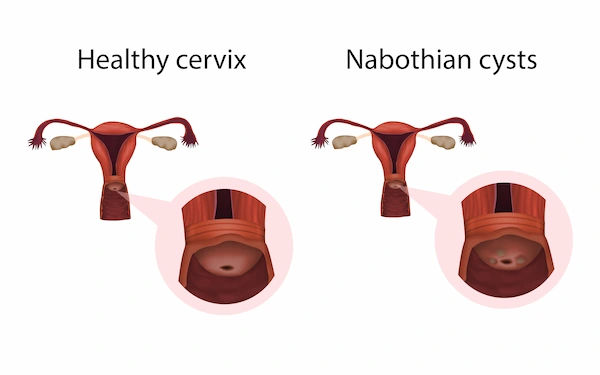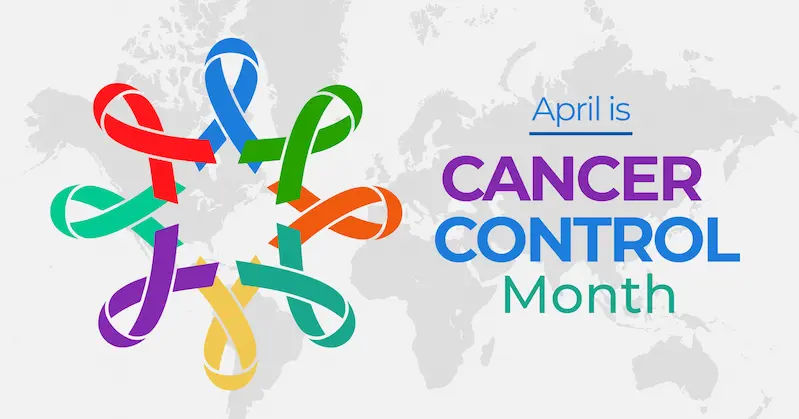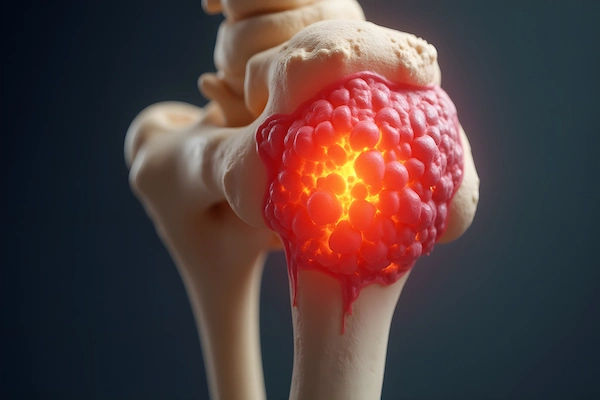A Comprehensive Guide to Immunotherapy: How It Fights Cancer
Know what is immunotherapy, its role in fighting cancer, the difference from chemotherapy, how it works, its benefits, limitations and more.

Written by Dr. Shaik Abdul Kalam
Reviewed by Dr. Vasanthasree Nair MBBS
Last updated on 13th Jan, 2026

Introduction
A cancer diagnosis often brings to mind the challenging experiences of chemotherapy and radiation. But what if your body’s own natural defense system could be empowered to fight the disease? This is the promise of immunotherapy, a revolutionary approach to cancer treatment that has changed the landscape of oncology. This guide will walk you through everything you need to know: how it works, the different types available, what to expect during treatment, and the important questions to ask your doctor. Whether you are a patient or a caregiver, understanding this powerful tool is the first step in navigating your care journey.
What is Immunotherapy? A New Way to Fight Cancer
Immunotherapy, in its simplest form, is a biological therapy that uses substances made by the body or in a laboratory to improve or restore immune system function. The core idea is that cancer is smart; it can hide from the immune system or put up barriers that prevent immune cells from attacking it. Immunotherapy breaks down these barriers, essentially taking the "blinders" off your immune cells so they can see the cancer and mount a strong, targeted attack.
Think of your immune system as a highly trained security force constantly patrolling your body for invaders like viruses and bacteria. Cancer cells, however, are not foreign invaders; they are your own cells that have mutated and grown out of control. Because they are so similar to healthy cells, the immune system’s security guards often walk right past them. Immunotherapy acts like a wanted poster, helping the immune system recognise these rogue cells as the dangerous threats they are.
Consult an Immunologist for Personalised Advice
Immunotherapy vs. Chemotherapy: What's the Difference?
This is a fundamental question for many patients. The difference lies in the target.
Chemotherapy attacks all rapidly dividing cells, both cancerous and healthy. This is why it causes side effects like hair loss, nausea, and low blood cell counts—it’s difficult to avoid damaging healthy tissues.
Immunotherapy does not directly kill cancer cells. Instead, it targets the immune system itself, specifically training and enabling it to attack the cancer. This leads to a different profile of side effects of immunotherapy cancer, which are often related to an overactive immune system attacking normal organs (like the skin, intestines, or lungs).
How Does Immunotherapy Work? Empowering Your Body's Army
To understand how immunotherapy works, it helps to think of your immune system as a car. For it to function properly, it needs both accelerators (gas pedals) to speed up an attack and brakes to slow it down and prevent it from attacking your own body—a condition known as autoimmunity.
The "Brakes" and "Gas Pedals" of Your Immune System
Cancer cells are cunning. They often exploit the immune system's natural "brakes," known as checkpoints, to shut down an immune attack. The most well-known checkpoints are proteins called PD-1 and CTLA-4. A cancer cell might have a corresponding protein (PD-L1) that acts like a key, fitting into the PD-1 "lock" on an immune cell (a T-cell) and effectively applying the brake, deactivating it.
A major class of immunotherapy drugs, called checkpoint inhibitors, works by blocking this interaction. They are like putting a piece of gum in the brake pedal, preventing the cancer cell from slowing down the immune response. This allows the T-cells to remain active and continue their assault on the tumour. This nuanced approach is why the success rate of immunotherapy can be so high for certain cancers, as it enables a sustained and powerful attack.
Common Types of Immunotherapy for Cancer
There isn't just one kind of immunotherapy. It's a broad category with several different strategies, each suited for different types of cancer.
Immune Checkpoint Inhibitors: Releasing the Brakes
As described above, these are drugs that target checkpoint proteins. They are the most widely used form of immunotherapy today. Examples you might have heard of include Pembrolizumab (Keytruda), Nivolumab (Opdivo), and Ipilimumab (Yervoy). They are used to treat a growing list of cancers, including melanoma, lung cancer, and kidney cancer.
CAR T-Cell Therapy: Engineering Your Soldiers
This is a highly personalised and advanced therapy. A sample of the patient's own T-cells is taken and genetically engineered in a lab to produce special receptors called chimeric antigen receptors (CARs) on their surface. These CARs allow the T-cells to recognise and bind to specific proteins on cancer cells. The engineered cells are then multiplied in the lab and infused back into the patient, where they become a living drug that seeks and destroys cancer cells. CAR-T cell therapy has shown remarkable success in certain blood cancers like leukaemia and lymphoma.
Cancer Vaccines: Training Your Defenses
Unlike preventive vaccines (like the HPV vaccine, which prevents cervical cancer), treatment vaccines are designed to treat an existing cancer. They work by exposing the immune system to a cancer-specific antigen, training it to recognise and attack cells bearing that antigen. Sipuleucel-T (Provenge) is an example used for prostate cancer.
Monoclonal Antibodies: Targeted Missiles
These are laboratory-made molecules designed to serve as substitute antibodies. They can be engineered to attach to specific parts of cancer cells, flagging them for destruction by the immune system. Some are "naked," meaning they work alone, while others are "conjugated," carrying a chemotherapy drug or radioactive particle directly to the cancer cell.
Which Cancers Can Be Treated with Immunotherapy?
Immunotherapy is not a universal cure, but its application is expanding rapidly through clinical trials. It has received FDA approval for numerous cancers, including:
1. Melanoma
2. Lung cancer
3. Kidney cancer
4. Bladder cancer
5. Lymphoma
6. Head and neck cancers
7. Liver cancer
8. Certain types of colorectal and stomach cancers
The effectiveness often depends on specific biomarkers, such as the level of PD-L1 protein on the tumour cells or having a high number of genetic mutations (high tumour mutational burden). Your oncologist will perform tests to see if your cancer's profile makes you a good candidate for immunotherapy for lung cancer or other specific types.
What to Expect: The Immunotherapy Treatment Process
Eligibility and Biomarker Testing
Not every patient is a candidate. The first step involves thorough testing, which may include a biopsy to analyse the tumour for specific biomarkers (like PD-L1). Genetic testing of the tumor might also be done. These tests help predict whether you are likely to respond to treatment. If your initial tests are inconclusive, consulting a specialist through a platform like Apollo24|7 can help you understand if further biomarker analysis is needed.
The Treatment Cycle and Timeline
Immunotherapy is typically given as an intravenous (IV) infusion in an outpatient clinic. A common schedule is an infusion every 2, 3, 4, or 6 weeks. Unlike chemotherapy, sessions are often quicker, sometimes taking only 30 minutes. It's important to know that immunotherapy can take longer to show results than chemotherapy. Scans are usually done every few months to monitor progress. A unique phenomenon is called "pseudoprogression," where scans may initially show tumour growth due to immune cells infiltrating the cancer, before it later shrinks.
Managing Side Effects of Immunotherapy
While often different from chemo, side effects can occur and must be taken seriously. They are called immune-related adverse events (irAEs) because they result from the immune system attacking healthy organs.
Common Immune-Related Adverse Events (irAEs)
1. Skin: Rash, itching.
2. Digestive System: Diarrhoea, colitis.
3. Lungs: Pneumonitis (cough, shortness of breath).
4. Endocrine System: Thyroid problems, inflammation of the pituitary gland.
5. Liver: Hepatitis.
When to Contact Your Doctor
Prompt communication is critical. You should contact your doctor immediately if you experience a high fever, severe diarrhoea, shortness of breath, or significant changes in energy or mental state. Most side effects are manageable with corticosteroids or other immunosuppressants, but early intervention is key. If you experience new or worsening symptoms between scheduled visits, you can quickly consult a doctor online with Apollo24|7 for initial guidance before your next oncology appointment.
The Reality of Immunotherapy: Benefits and Limitations
The benefits of immunotherapy can be profound. When it works, it can lead to long-lasting remissions and even cures in some patients with advanced cancer who have few other options. The side effect profile, while serious, is often preferable to the cumulative toxicity of chemotherapy.
However, the limitations are real. It does not work for everyone. Response rates vary widely by cancer type and individual biomarkers. Some cancers do not respond at all. Furthermore, the cost of cancer immunotherapy can be very high, and access may be limited. There is also ongoing research to understand why some patients stop responding to treatment (developing resistance) and how to combine immunotherapies for greater effect.
Conclusion
Immunotherapy represents one of the most exciting advances in modern oncology, offering a more targeted and potentially durable way to fight cancer. Understanding how it works, what to expect, and how to manage its unique challenges empowers you to be an active partner in your care. While it's a complex field, the fundamental principle is simple: harnessing the incredible power within your own body. The journey with cancer is deeply personal, and treatment decisions should be made in close consultation with your medical team. Continue to ask questions, seek support, and stay informed about new developments. If you are considering immunotherapy, discuss with your doctor whether it's a suitable option for your specific diagnosis.
Consult an Immunologist for Personalised Advice
Consult an Immunologist for Personalised Advice

Dr. Anand Ravi
General Physician
2 Years • MBBS
Bengaluru
PRESTIGE SHANTHINIKETAN - SOCIETY CLINIC, Bengaluru

Dr. Akhila Hb
Paediatrician
10 Years • MBBS, MD ( PAEDIATRICS), Fellowship in Asthma and Allergy
Bengaluru
Apollo Medical Center, Marathahalli, Bengaluru
(75+ Patients)

Dr Abilash Jain
General Physician/ Internal Medicine Specialist
12 Years • MBBS,DNB(FM),MNAMS,FIAMS,CCGMG(GERIATRICS),DGM (GERIATRICS),PGCD(DIABETES,BOSTON UNIVERSITY),FID(DIABETICS UK)CCEPC(PALLIATIVE CARE),CCCC(CRITICAL CARE)
Visakhapatnam
Apollo Clinic Vizag, Visakhapatnam

Dr. E Prabhakar Sastry
General Physician/ Internal Medicine Specialist
40 Years • MD(Internal Medicine)
Manikonda Jagir
Apollo Clinic, Manikonda, Manikonda Jagir
(175+ Patients)

Dr. Renu Saraogi
General Physician/ Internal Medicine Specialist
21 Years • MBBS, PGDFM
Bangalore
Apollo Clinic Bellandur, Bangalore
(250+ Patients)
Consult an Immunologist for Personalised Advice

Dr. Anand Ravi
General Physician
2 Years • MBBS
Bengaluru
PRESTIGE SHANTHINIKETAN - SOCIETY CLINIC, Bengaluru

Dr. Akhila Hb
Paediatrician
10 Years • MBBS, MD ( PAEDIATRICS), Fellowship in Asthma and Allergy
Bengaluru
Apollo Medical Center, Marathahalli, Bengaluru
(75+ Patients)

Dr Abilash Jain
General Physician/ Internal Medicine Specialist
12 Years • MBBS,DNB(FM),MNAMS,FIAMS,CCGMG(GERIATRICS),DGM (GERIATRICS),PGCD(DIABETES,BOSTON UNIVERSITY),FID(DIABETICS UK)CCEPC(PALLIATIVE CARE),CCCC(CRITICAL CARE)
Visakhapatnam
Apollo Clinic Vizag, Visakhapatnam

Dr. E Prabhakar Sastry
General Physician/ Internal Medicine Specialist
40 Years • MD(Internal Medicine)
Manikonda Jagir
Apollo Clinic, Manikonda, Manikonda Jagir
(175+ Patients)

Dr. Renu Saraogi
General Physician/ Internal Medicine Specialist
21 Years • MBBS, PGDFM
Bangalore
Apollo Clinic Bellandur, Bangalore
(250+ Patients)
More articles from Cancer
Frequently Asked Questions
1. Is immunotherapy a last-resort treatment?
Not necessarily. While it was initially used for advanced cancers, it is now often used as a first-line treatment for certain types, like metastatic melanoma or non-small cell lung cancer with high PD-L1 expression. It's also used after surgery (adjuvant therapy) to prevent recurrence.
2. How long can you live on immunotherapy?
There's no single answer. Some patients with advanced cancer have seen their disease controlled for many years, effectively turning it into a chronic condition. The goal is often long-term survival, and results continue to improve with new research and combination therapies.
3. What is the success rate of immunotherapy?
Response rates vary dramatically. For some cancers like Merkel cell carcinoma, response rates can be over 50%. For others, it may be lower. It's essential to discuss the expected response rates for your specific cancer type and situation with your oncologist.
4. Does immunotherapy cause hair loss?
Typically, no. Hair loss is a common side effect of chemotherapy because it targets rapidly dividing cells, including hair follicles. Since immunotherapy targets the immune system, it does not commonly cause hair loss. The main side effects are related to inflammation in various organs.
5. Can you combine immunotherapy with chemotherapy or radiation?
Yes, and this is a very active area of research. Combinations can sometimes be more effective than either treatment alone. For example, some lung cancer patients receive immunotherapy alongside chemotherapy. Radiation can sometimes make a tumour more visible to the immune system, enhancing the effect of immunotherapy.




